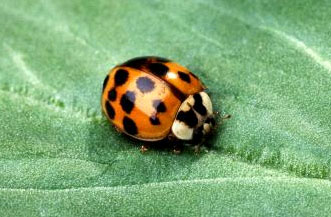Ladybugs ruin good wine
Ladybugs ruin good wine
Rhett A. Butler, mongabay.com
March 26, 2007
Secretions by ladybugs can taint the aroma and flavor of otherwise perfectly good wine, but scientists at Iowa State University say they may have devised a solution.
Iowa State chemists have identified several compounds that are responsible for the ladybug’s liquid secretion that produces the beetle’s noxious odor, which is sometimes processed along with grapes resulting in what winemakers call “ladybug taint”. The researchers say their work, which was presented Sunday at the 233rd national meeting of the American Chemical Society, “could lead to new strategies to detect and eliminate the offensive compounds” resuling in better tasting wine.
Jacek Koziel, an agricultural engineer at Iowa who led the study, said that four chemicals are mostly responsible for the characteristic ladybug odor.
 Researchers have recently identified several chemicals produced by ladybugs that can taint the aroma and flavor of wine. Courtesy of USDA Agricultural Research Service |
“Because of the potency of the compounds, even a slight amount can potentially affect a wine’s character,” he said.
The researchers note that while ladybugs are generally are considered beneficial insects, the invasion of the soybean aphid, an invasive species, has triggered boom in their population, making themselves a pest across the Midwest.
“With this new prey, the abundance of one species of lady beetle, Harmonia axyridis or the multicolored Asian ladybird beetle, has also increased,” said study co-author Matt O’Neal, an entomologist at the university. “They are basically a good bug gone bad.”
This article is based on a news release from the American Chemical Society